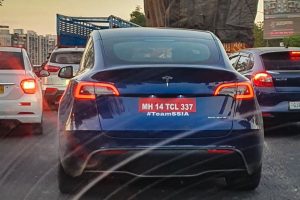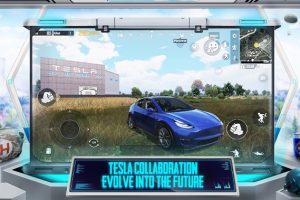Key Takeaways
- Tesla is launching its first stores in India, with locations chosen in New Delhi and Mumbai.
- Elon Musk met with India’s PM Narendra Modi, reigniting plans for Tesla’s entry into the Indian market.
- The New Delhi store will be in the Aerocity area, near the international airport, while Mumbai’s store will be in the Bandra Kurla Complex.
- Both stores will be approximately 465 square meters but will not include service centers.
- Discussions for a potential Tesla manufacturing facility in India have been ongoing, primarily considered in Maharashtra, Tamil Nadu, or Gujarat, but remain unconfirmed.
- High import tariffs in India have been a barrier to Tesla’s entry, with plans repeatedly on hold since 2019.
- Tesla has posted job listings in India, mainly in Mumbai, indicating serious steps towards establishing operations.
In an eagerly awaited move, Tesla Inc. is set to make its mark in the Indian automotive landscape by opening its first retail outlets in the bustling urban centers of New Delhi and Mumbai. This development marks a turning point in Tesla’s long-standing intention to penetrate the Indian market, a journey marked by years of planning, strategic political engagements, and market analysis. This blog delves into Tesla’s strategic entry into India, the challenges of high import tariffs, potential manufacturing footprints, and what this means for the Indian automotive sector.
Tesla’s First Steps: Strategic Store Locations
Choosing Prime Locations
Tesla has strategically chosen New Delhi and Mumbai as the sites for its inaugural stores in India. These cities are not only economic powerhouses but also represent a significant share of the luxury vehicle market in the country. The New Delhi store is set to open in the Aerocity area, strategically located near the international airport, which ensures high visibility and accessibility. Meanwhile, the Mumbai store will be located in the premium Bandra Kurla Complex, a prime business district known for its high foot traffic and affluent customer base. Each store is planned to cover approximately 465 square meters, offering ample space to showcase Tesla’s premium electric vehicles.
Leadership Dialogue: Elon Musk and PM Narendra Modi
Engagement at the highest level has been a key aspect of Tesla’s India strategy. A crucial meeting between Tesla CEO Elon Musk and Indian Prime Minister Narendra Modi has reignited Tesla’s entry plans, reflecting the importance of governmental support in navigating regulatory and economic challenges. Such high-level dialogues have been instrumental in laying the foundation for Tesla’s operational strategy in the country.
High Import Tariffs: A Double-Edged Sword
The Tariff Conundrum
One of the most significant challenges Tesla faces in India is the high import tariffs, which can reach up to 100 percent. These tariffs present a formidable barrier, making Tesla vehicles expensive for Indian consumers compared to local brands. This cost barrier has delayed Tesla’s entry, as the electric vehicle giant must carefully evaluate the financial viability under these constraints.
Potential Solutions
To mitigate the impact of these tariffs, Tesla is reportedly considering local manufacturing as a long-term solution, which would significantly reduce costs. This strategy not only eases tariff burdens but also aligns with India’s “Make in India” initiative, promoting local manufacturing and job creation.
The Manufacturing Debate: India’s Role in Tesla’s Global Network
Exploring Manufacturing Options
While Tesla has expressed interest in establishing a manufacturing facility in India, this decision is yet to be finalized. The automaker is looking at potential locations in Maharashtra, Tamil Nadu, or Gujarat, states known for robust industrial infrastructure and business-friendly policies. Setting up a factory in India could provide Tesla with a strategic advantage, allowing it to cater to both domestic and global markets.
Benefits of Local Manufacturing
- Reduction in Vehicle Cost: By manufacturing locally, Tesla can significantly reduce the cost of its electric vehicles, making them more competitive in the Indian market.
- Employment Opportunities: A manufacturing plant would create numerous jobs, fostering economic development in the region.
- Enhanced Supply Chain: Local operations would streamline the supply chain, improving efficiency and reducing lead times.
Stepping Stones: Job Listings and Market Presence
With the release of job listings, especially in Mumbai, Tesla is signaling its commitment to establishing a firm foothold in the Indian market. This proactive employment strategy is a precursor to operational readiness, emphasizing its approach to build a strong market presence.
A New Era for Electric Vehicles in India
Tesla’s entry into India is not just about selling cars; it’s about setting a precedent in the burgeoning electric vehicle market in the country. As Tesla navigates the complexities of high tariffs and evaluates manufacturing options, the outcome could revolutionize the Indian automotive industry, steering it towards a sustainable, electric future.





